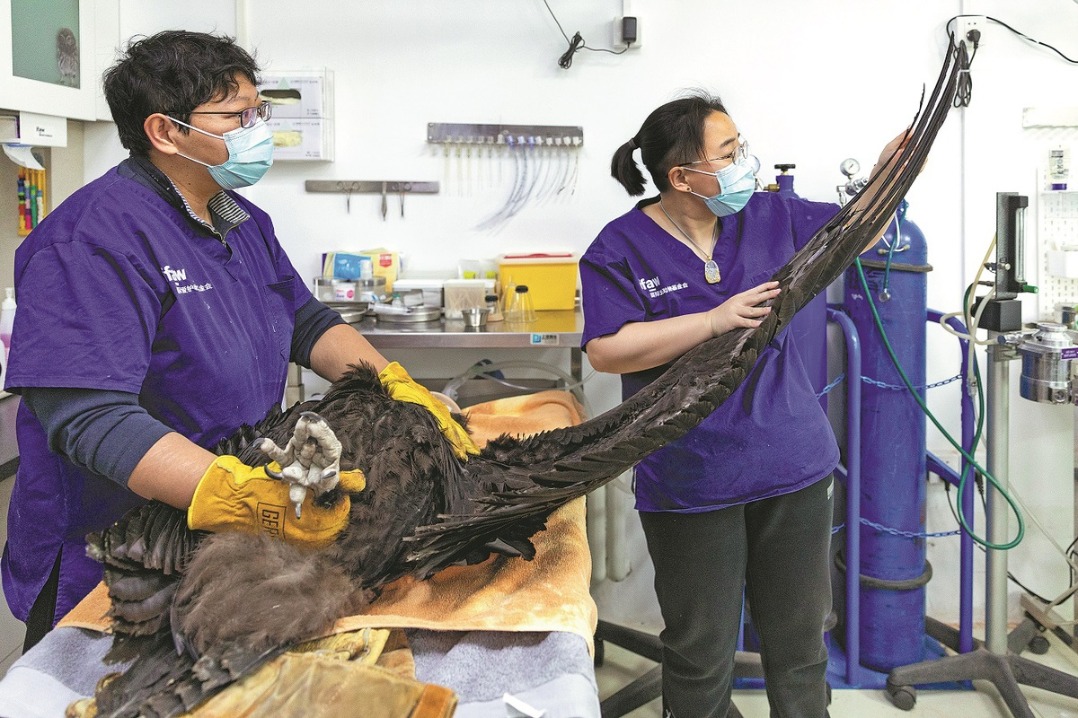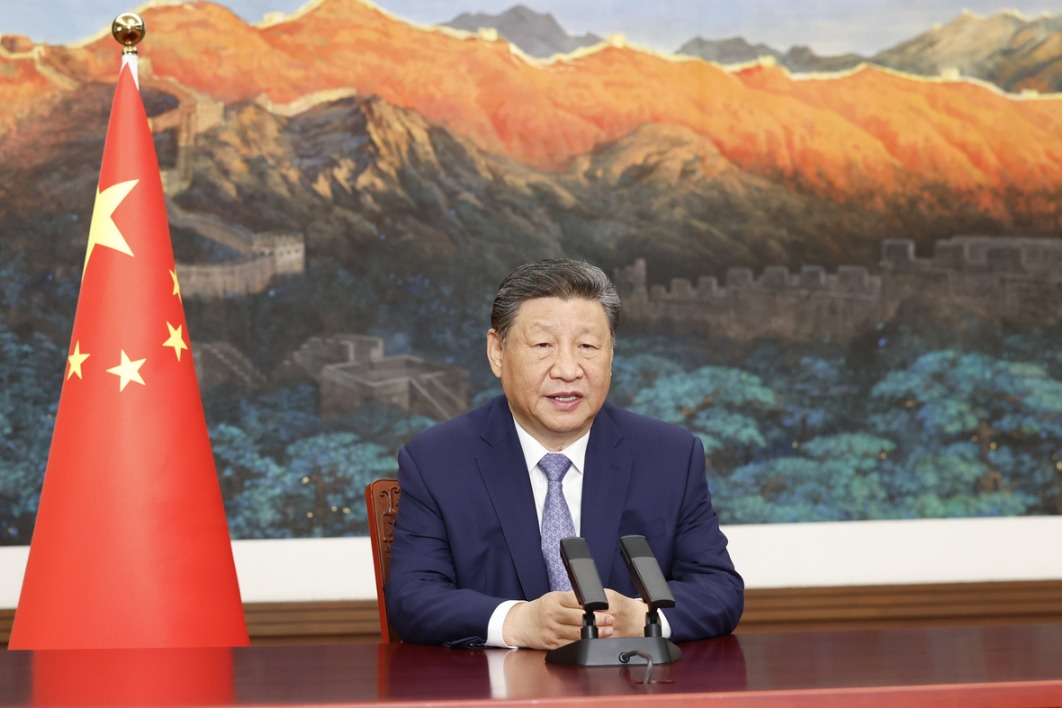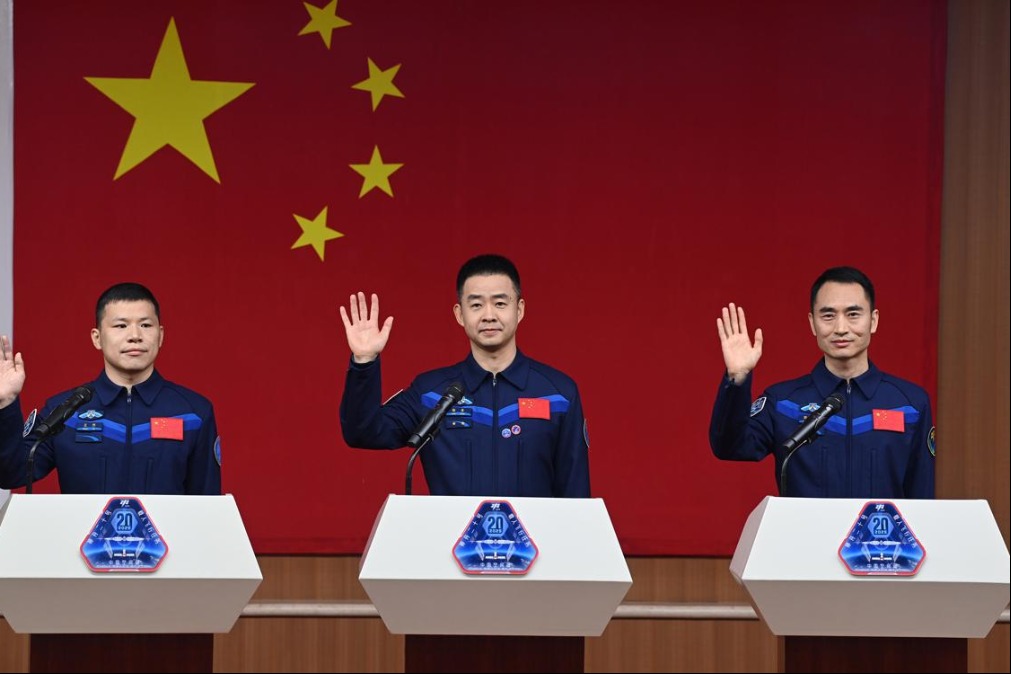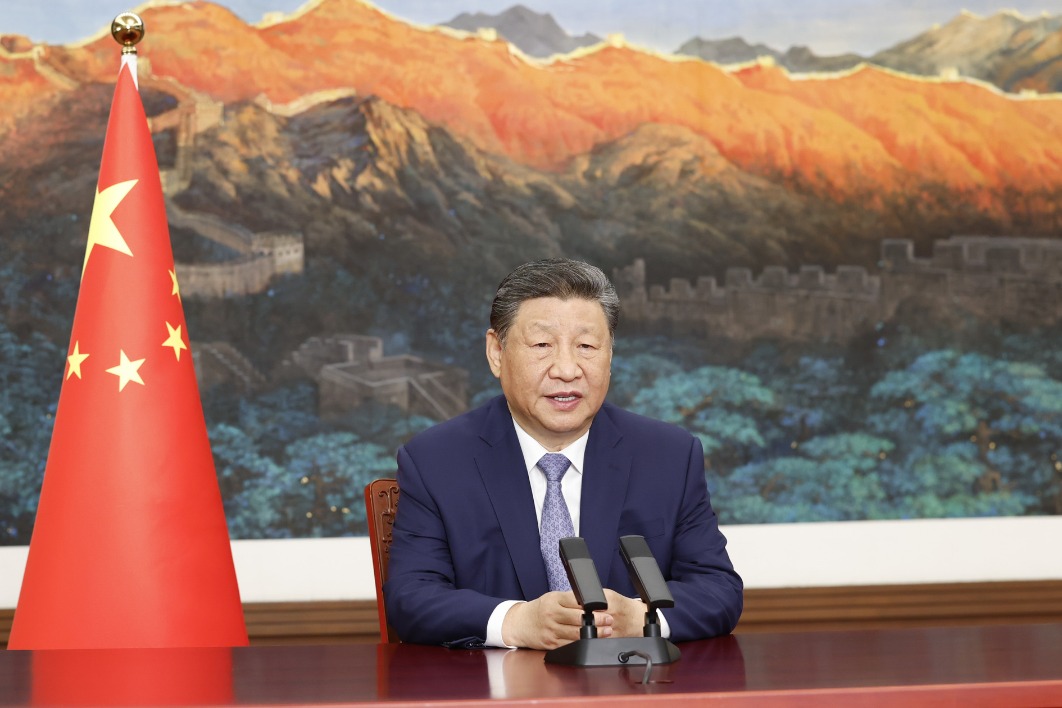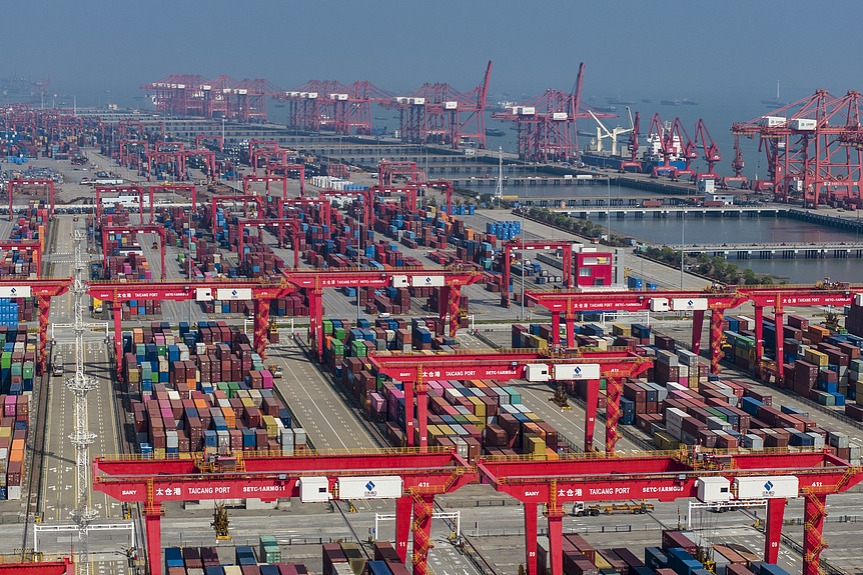Architect of progression


Revitalizing the Bandung Spirit is essential as the US is now firmly entrenched in its Cold War revival
This year marks the 70th anniversary of the 1955 Asian-African Conference, also known as the Bandung Conference. As the first major international gathering hosted by newly independent Asian and African nations without Western colonial powers, this was a historic milestone signaling the Global South's emergence as a significant political force. This momentum continued through the Non-Aligned Movement and the G77, with Asia, Africa and Latin America forming the "Third World" — a collective capable of challenging Cold War bipolarity between the United States and the Soviet Union. Since the 1980s, deepening South-South cooperation has strengthened their collective influence. Today, developing nations are increasingly shaping global governance and the economic order, asserting independent stances on key international issues. Their growing prominence solidifies the Global South as a transformative force in world affairs.
Although today's world bears little resemblance to that of 70 years ago, and nations now face vastly different development challenges, the Five Principles of Peaceful Coexistence and the Bandung Spirit of solidarity, friendship and cooperation remain vital inspirations for Global South collaboration. This is particularly relevant as geopolitical rivalries surge, regional conflicts break out, and hegemonic power politics intensify.
Global South nations must uphold political independence and maintain independent foreign policy. When the Bandung Conference convened, Asia and Africa were experiencing a surge of liberation movements. This historic gathering not only accelerated decolonization across three continents but also catalyzed their political awakening. By embracing the Five Principles of Peaceful Coexistence and advocating "recognition of the equality of all races and of the equality of all nations large and small" and "abstention from the use of arrangements of collective defense to serve the particular interests of any of the big powers", the conference crystallized these nations' determination to stay neutral in the Cold War. These principles formed the bedrock of the Non-Aligned Movement. Yet tragically, some nations later abandoned the Bandung Spirit, only to become victims of the proxy war between the two major powers of the US and the Soviet Union during the Cold War.
Today, while most Global South nations have achieved national independence, maintaining genuine sovereignty and strategic autonomy remains an enduring challenge. The US, clinging to its deep-rooted hegemonic mindset, purposefully sows ideological divisions — exaggerating differences in governance models and resurrecting Cold War rhetoric. Its goal is to coerce developing nations into picking sides in a renewed bloc confrontation, just as during the US-Soviet rivalry. Yet history's lesson is unequivocal: Hegemonic powers stir up geopolitical conflicts only to serve their own interests, and nations that surrender their autonomy inevitably become instruments of hegemony — a fate now befalling many European states trapped in strategic paralysis. Their predicament stems precisely from compromised security sovereignty, leaving them unable to shape their own futures. China rejects this dangerous Cold War revivalism. Instead, it reaffirms the Bandung Spirit — independence without isolation, solidarity without subordination. True strength lies not in choosing camps, but in developing cooperation rather than alliances.
Global South nations must also pursue cooperation by maximizing common ground while managing differences. The Bandung Conference marked the debut of the newly founded People's Republic of China on the multilateral diplomatic stage. At the time, most participating states lacked diplomatic ties with Beijing, harbored misconceptions about its political system, and — under US instigation — some even conflated communism with colonialism in ideological attacks targeting China. Facing this charged environment, the Chinese delegation pioneered the principle of seeking common ground while putting aside differences. This constructive approach not only secured majority endorsement but also neutralized Washington's campaign to isolate China diplomatically.
Today, Global South nations naturally exhibit diverse political systems, development stages and socioeconomic conditions — differences that inevitably lead to competing interests or even occasional friction. While such divergence is normal, certain countries deliberately exploit these variations to drive wedges between China and its Global South partners, sabotaging South-South cooperation. For instance, the US-led Western media have relentlessly hyped up a so-called Chinese "debt trap" and "new colonialism", seeking to shift the development pressure of Global South nations onto China. Also, despite China's unequivocal commitment to the developing world, some Western media have sensationalized the baseless discourse that China has "graduated" from being a developing country and even fabricated the highly ideological "Global East" concept, attempting to exclude China from the Global South. Therefore, Global South countries must adhere to the principle of seeking common ground while putting aside differences, defend their collective historical legacy, focus on similar current needs, and pool their combined strength in cooperation.
Finally, Global South countries must unite and strengthen themselves to achieve win-win cooperation. Since the Bandung Conference, they have actively promoted South-South cooperation, using it to leverage North-South cooperation, and collectively reshape the international political and economic order in favor of developing nations. Their collaborative efforts have yielded significant progress in critical areas including climate change mitigation, food and energy security, and sustainable development. This collective rise is underscored by data showing the Global South's economic transformation — its share of global GDP has surged from roughly 20 percent at the turn of the century to around 40 percent today, contributing over 80 percent of global growth in the past two decades.
Undeniably, Global South nations confront unprecedented transformation pressures. Having suffered greatly from the century's worst pandemic and resurgent deglobalization sentiment, they now grapple with cascading challenges — from debt crises and inflation to widening digital divides. Compounding these difficulties, developed countries are reluctant to take on their due responsibilities and are even reducing or suspending development aid. The US, as chief architect of this regression, is undermining multilateralism by withdrawing from international bodies and shirking responsibilities, worsening the development deficit of many Global South countries. This dire landscape makes reviving the Bandung Spirit as the architect of progression not just preferable but existential. Only through united action can these nations pool governance solutions to common challenges; strategically combine financial resources, technological capabilities and critical mineral endowments; present a unified front in defending global trade stability; and fortify vulnerable supply chains. Such coordinated efforts would do more than mitigate current crises — they would position the Global South as an indispensable stabilizer in an uncertain world.
Looking ahead, China will further promote the Bandung Spirit, implement the Global Development Initiative, the Global Security Initiative and the Global Civilization Initiative, and enrich the Bandung Spirit with new dynamism of the times. China will work with the Global South partners to build a community with a shared future for mankind.
The author is vice-president and research professor at the China Institutes of Contemporary International Relations. The author contributed this article to China Watch, a think tank powered by China Daily.
Contact the editor at [email protected].

















